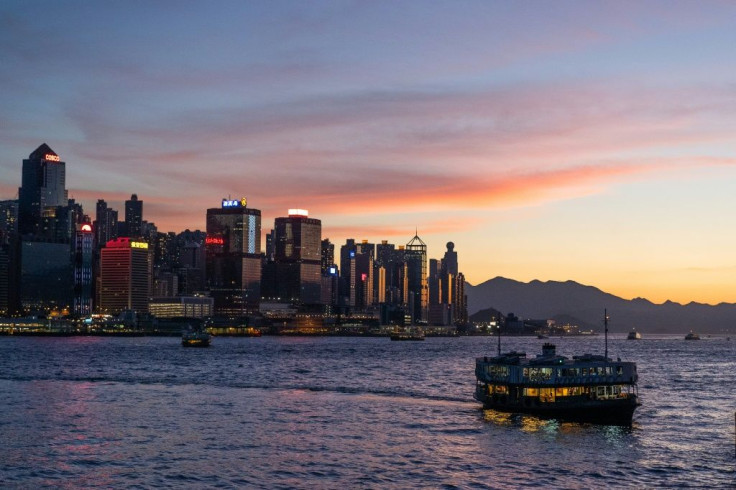Triads Arrested In Hong Kong Speedboat Smuggling Raids
Dozens of Hong Kong triad members have been arrested in a series of operations targeting gangs using high-powered speedboats to smuggle contraband to the Chinese mainland, police said Monday.
Smuggling has been a mainstay of the triad organised crime gangs operating on both sides of the border for years but the phenomenon has surged during the coronavirus pandemic.
Police embarked on a crackdown after a marine officer was killed last month when her vessel was rammed by smugglers during a high-speed chase.
On Monday, Hong Kong police said 365 people had been arrested in a series of joint raids over the last two weeks, including 35 men with triad backgrounds suspected of running the sea smuggling operations.
Chinese mainland police also arrested two men suspected of being involved in the collision that killed the officer, senior superintendent Ho Chun-tung, from Hong Kong's Organised Crime and Triad Bureau, told reporters.
More than 50 speedboats have been seized along with 1,700 tonnes of frozen meat worth HK$500 million ($64 million).
Frozen meat is just one part of a cornucopia of in-demand goods that gangs smuggle into China.
Recent speedboat smuggling busts have netted everything from luxury watches, handbags and shoes to endangered animal parts, cosmetics, wines, whiskey and cigars.
Police said so far this year they have seized HK$730 million worth of contraband goods from speedboat smuggling gangs compared to HK$490 million in the whole of last year.
Hong Kong has no sales tax, something that makes successful smuggling hugely lucrative.
Mainland China is also awash with fake brands while regular food health scares have reinforced the demand for international goods.

Until the crackdown sparked by the marine officer's death, smugglers often relied on sheer force of numbers.
Each day, dozens of Chinese mainland vessels would wait just outside Hong Kong's waters near the city's airport.
Speedboats stuffed with goods, some of them fitted with as many as six engines to outrun police, would then emerge en masse and rush to the waiting mainland boats.
Some of these dramatic recent smuggling runs were captured on camera by members of the public using phones.
Three customs officers were killed in January last year when their boat capsized during a chase with speedboat gangs in waters off the airport.
While Hong Kong has long been one of the safest cities in the world in terms of street crime, triad organised crime gangs have a long presence in the city.
The gangs trace their origins to 19th century Chinese fraternal organisations.
Most fled to Hong Kong, Macau and Taiwan when the communists took power in mainland China in 1949.
But in recent decades, most triad gangs switched ideological allegiance and embraced Beijing.
Since Hong Kong's 1997 handover from Britain, some of Beijing's most ardent critics have found themselves at the wrong end of a triad assault.
Major gangs like Wo Shing Wo, 14K and Sun Yee On have a presence in both Hong Kong and the Chinese mainland as well as links to international organised crime.
© Copyright AFP {{Year}}. All rights reserved.





















